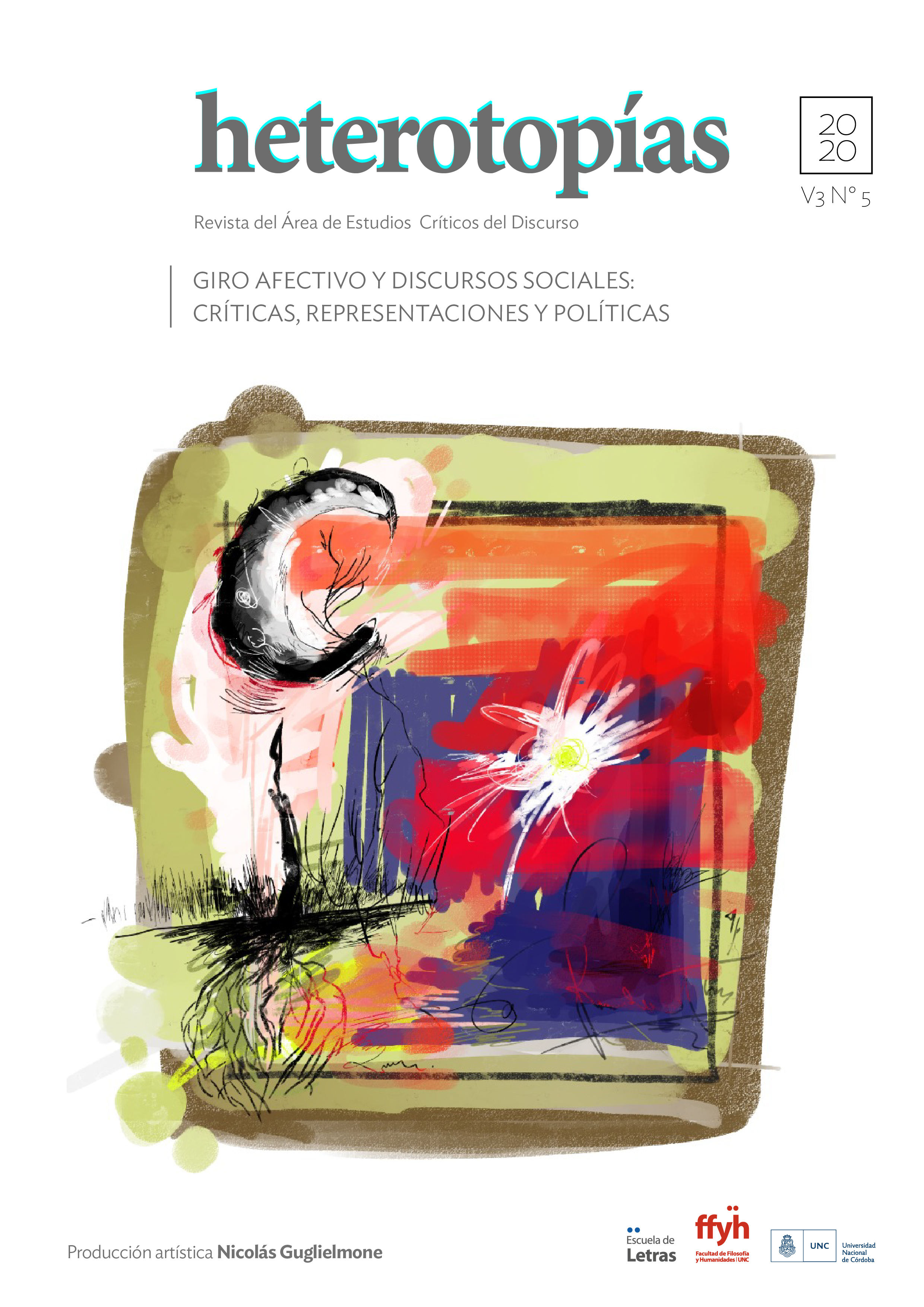Gliding through: poetics of cohabitation
Main Article Content
Abstract
This article has its origin in the feeling of being interpellated, touched by an artistic narrative called Saved Images, about women’s prison in Ezeiza. This material was produced given the prohibition of taking photographs in the prison. The purpose of this work is to criticize the hegemonic representations of prisoners, and to question which new recognition horizons the critique might enable. In a dialogue with Butler and Levinas, we ask for the ways in which singular narratives of vulnerability spread out. The aims of this work are, first, to analyze Saved Images as a material that enables to interrogate a series of assumptions of hegemonic representations of prisoners, even in some feminist trends. Second, based on a butlerian analysis, we seek to discuss the concepts of precarity and frame of recognition, when interpellating our affective responsiveness before other’s vulnerability. Third, with Levinas, our purpose is to analyze the concept of the face, which evidences our existential and inexorable bond with one another. And, finally, we intend to suggest other ethical horizons we might be able to imagine throughout this critique. The methodology is to work with the narratives in Saved Images, as a cultural material and production, and not directly with prison as an object, as we recognize the mediations. We believe that this research might contribute to a critique of our affective responsiveness and, in this sense, we reflect: who do we feel responsible for? How is our responsiveness performed? We hope our work is an outline about feminist ways of enabling ethics of cohabitation, that challenge the predictable.
Downloads
Article Details

This work is licensed under a Creative Commons Attribution-NonCommercial-ShareAlike 4.0 International License.
Those authors who have publications with this journal, accept the following terms: Those authors who have publications with this journal, accept the following terms:
a. The authors will keep their copyright and guarantee to the journal the right of first publication of their work, which will be simultaneously subject to the Creative Commons Attribution - Non-Commercial - Share Alike (by-nc-sa) Attribution License; no commercial use of the original work or any derivative works is allowed, the distribution of which must be done with a license equal to the one that regulates the original work.
b. Authors may adopt other non-exclusive license agreements for the distribution of the published version of the work (e.g., deposit it in an institutional telematic archive or publish it in a monographic volume) provided that the initial publication in this journal is indicated.
c. Authors are allowed and recommended to disseminate their work through the Internet (e.g. in institutional telematic archives or on their website) before and during the submission process, which may lead to interesting exchanges and increase the number of citations of the published work. (See The effect of open access).
How to Cite
References
Acta del Servicio Penitenciario Federal (23/08/2016), relativa a la prohibición de ingreso de medios de reproducción audiovisual o fotográfico al Taller de Fotografía del Complejo Penitenciario Federal IV de Mujeres, Ezeiza, Buenos Aires, CUE.
Arendt, H. (2003). Eichmann en Jerusalén. Un estudio sobre la banalidad del mal. Barcelona: Lumen.
Butler, J. (2001). El grito de Antígona. Barcelona: El Roure.
Butler, J. (2006). Vida Precaria. El poder del duelo y la violencia. Buenos Aires: Paidós.
Butler, J. (2010). Marcos de guerra. Las vidas lloradas. Buenos Aires: Paidós.
Butler, J. (2014). Vida precaria, vulnerabilidad y la ética de la cohabitación. En Saez Tajafuerce, B. (Ed.). Cuerpo, memoria y representación. Adriana Cavarero y Judith Butler en diálogo. Barcelona: Icaria.
Butler, J. (2017). Cuerpos en alianza y lucha política. Buenos Aires: Paidós.
Cosse, I. (2009). Los nuevos prototipos femeninos en los años ’60 y ’70: de la mujer doméstica a la joven liberada. En Andujar, A., D’Antonio, D., Gil Lozano, F., Grammático, K. y Rosa, M.L. (Eds.). De minifaldas, militancias y revoluciones. Exploraciones sobre los ’70 en la Argentina (pp. 171-186). Buenos Aires: Luxemburg.
Crenshaw, K. (1989). Demarginalizing the Intersection of Race and Sex: A Black Feminist Critique of Antidiscrimination Doctrine, Feminist Theory and Antiracist Politics. University of Chicago Legal Forum, 1(8), 139-167. Recuperado de: https://chicagounbound.uchicago.edu/uclf/vol1989/iss1/8.
Davis, A. (2017). ¿Son obsoletas las prisiones? Córdoba: Bocavulvaria ediciones.
Falckoff, M. (2006). Poemas de Guantánamo, en El País, disponible en: http://www.cat.elpais.com/diario/2006/07/08/babelia/1152316228_850215.html
Levinas, E. (2002). Totalidad e infinito. Ensayo sobre la exterioridad. Salamanca: Sígueme.
Radio Kermés (2016). El colectivo YoNoFui en la búsqueda de reconstruir identidades de las mujeres que pasan por la cárcel. Recuperado de: http://www.radiokermes.com/index.php/component/k2/item/5981-el-colectivo-yo-no-fui-en-la-busqueda-de-reconstruir-identidades-de-las-mujeres-que-pasan-por-la-carcel.
Rubin, G. (2018). En el crepúsculo del brillo. La teoría como justicia erótica. Córdoba: Bocavulvaria.
Weston, K. (1997). Families We Choose. Lesbians, Gays, Kinship. New York: Columbia University Press.
YoNoFui (2018). Imágenes Guardadas. Taller de fotografía y escritura, Ezeiza, 2016. YoNoFui: Buenos Aires.
